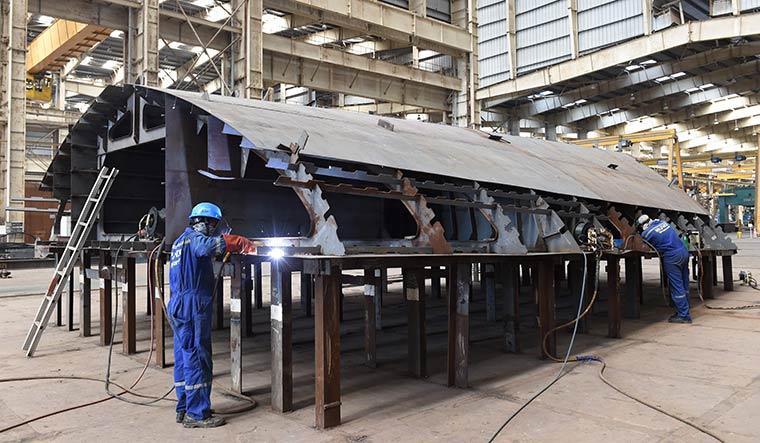OUTGOING GOVERNMENTS asking ministries to frame policies for the next government is unusual. Narendra Modi, however, seldom gives two hoots about conventions. In March, around the time the Lok Sabha elections were announced, the prime minister asked the ministries to formulate 100-day action plans for the new government and send them to his office. Approving these plans would be the first file for all the ministers in the new government.
Infrastructure
The new government will continue with its increased spending and focus on building world-class infrastructure. This would also ensure that the economic benefits of infrastructure development reach everyone, especially the rural population. A massive spend of about 03 lakh crore on infrastructure projects is estimated. A third of this is likely to go to rural infrastructure.
Exports
Doubling of exports by 2025 features prominently on the government’s list of priorities. Exports had slipped to a five year low, making the rupee weak and resulting in a large number of job losses. The government is keen to introduce easy finance and credit schemes, akin to the MUDRA loan. The focus this time would largely be on sectors that generate employment. An incentive based on the number of jobs provided is likely to be worked out. According to Ajay Sahai, director general and CEO of Federation of Indian Exports Organisation, labour intensive and traditional exports have been hurt the most by domestic policy shortcomings and external factors.
Agrarian distress
The focus will be on bringing in inclusive and growth-oriented changes. “A number of steps will be taken to improve the marketability of agricultural produce,” said a government official. The first Modi government had tried to bring in some amendments to the Agricultural Produce Marketing Act and floated a model act for the states to follow. However, it did not change much for farmers. Measures like e-marketplace for agri-commodities also did not yield much success. There will be efforts to overhaul these.
Manufacturing
A number of measures like reducing the tax burden on small producers and incentivising them for providing jobs are likely. “Make in India needs to be revived to benefit the small scale sector,” said Ashwani Mahajan, national co-convenor of the Swadeshi Jagaran Manch.
Transportation
The focus will be on improving the penetration of electric vehicles, and there will be more incentives for buying electric two-wheelers and three-wheelers. The government is also likely to move an amendment to the Motor Vehicles Act to restrict the age of vehicles.
Corporate governance
The government would tighten enforcement of rules on companies. It had earlier delisted more than two lakh shell companies, acting on the advice of a Supreme Court-appointed special investigation team on black money. The SIT is learnt to have pointed to certain regulatory lapses to check the transfer of funds within companies and across the border.
Insolvency and bankruptcy
Resolution of debt defaults under the IBC code has faced inordinate delays. Also, banks have often taken a backseat on settling dues to other creditors because of the lack of adequate safeguards in the company debt and business resolution framework set up by the last government. Initiating personal insolvency, group insolvency and cross-border insolvency could also be introduced in the amendments to the IBC.


